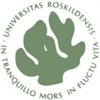Journalism - Masters
| City | Student Scholarships | Category | Duration | Admission Requirements | Education Institution |
|---|---|---|---|---|---|
| Aarhus, Odense, Roskilde | SU berettiget | Masters | 2 year | Bachelor |
Roskilde University (RUC) Aarhus university University of Southern Denmark |
| City | Aarhus, Odense, Roskilde |
| Student Scholarships | SU berettiget |
| Category | Masters |
| Duration | 2 year |
| Admission Requirements | Bachelor |
| Education Institution |
Roskilde University (RUC) Aarhus university University of Southern Denmark |

Journalism is the traditional education with the aim to train you to become a journalist or job profiles focusing on outreach, journalistic work. The program in Journalism teaches you the classic journalistic disciplines as you can on the spine - it comes to spelling, Constitution of articles, outreach and methodical work, interview role, source criticism, ethics and morality in news coverage and many other interesting subjects. As an important part of the training also includes a one-year compulsory internship where you can get tested his skills in practice at one of the many journalistic jobs.
Master's degree in Journalism also called cand.public. Because the course was an introduction to the various aspects of the journalistic work, but at the graduate portion will go for the advanced theories and methods for, among other research, source criticism, copywriting, how the good story is told, media training and other practical skills by journalist craft.
The subjects that you will be working extensively with covers, among other things: narrative journalism, community journalism, media sociology, journalistic methods and Language competence and communication skills. There are also excellent opportunities for a stay abroad.
MSc Cand. Public strengthens your general journalist training, and prepares you for an industry in motion. The training makes you a more reflective and professional journalist specializing in social sciences and the cultural sciences.
1 year
The first year is an intensive course where you're part of a team - partly together with other graduate students who have an academic background. Here you will be introduced widely to both social science as a cultural scientific theories and methods and learn how to write academic assignments - what it means to think, learn and analyze scientifically.
2 years
Second year is more flexible. Here you can choose specific courses in the social sciences or humanities in flexible combinations, for example, about culture and art; government, welfare state and politics; experience economy; or religion and immigrant issues.
There are also excellent opportunities to study abroad.
You write thesis in the fourth semester.
study Form
Journalism starts with a major introductory course where you attend courses in research, source criticism, interview techniques, communication, evaluation methods and preparation of articles.
Journalism is very practical subjects, where it is important to test all of your tools and skills in real life. Therefore often hosts workshops focusing on production and working methods. You will be working in editorial groups to hand write individual articles, and also writes a joint report on journalism problem.
If you read Journalism at RU you to obtain a master's degree, combining Informatics with another program. The following combinations are popular:
social Science
History
Culture and Language
Danish
International Development Studies
student Life
There are enrolled about 500 students of Journalism, so there are good opportunities to forge a strong network. There will be more fagcaféer and company visits during each semester. Journalism has its own magazine, Bermuda which serves as one of the education business cards in the industry. Many journalism students choose to quickly try out their future work, for example by writing articles for Bermuda, RUC-nyt, newspapers and other magazines or by example. To create productions for radio. The course also get many inquiries from organizations and institutions seeking a journalistic employee, volunteer or rewardt.
Job Opportunities
Journalists typically work for newspapers, weeklies and journals, online media, television and radio - and often a combination, since the boundaries between the various media flows more and more together.
Additionally, many public and private companies and organizations journalists to draw the company's / organization's profile and be the voice of the press.
And so begins many journalists jointly small production companies that provide journalistic products for an ever-growing media market.
Related student jobs
Write for the local magazine as a freelance writer.


